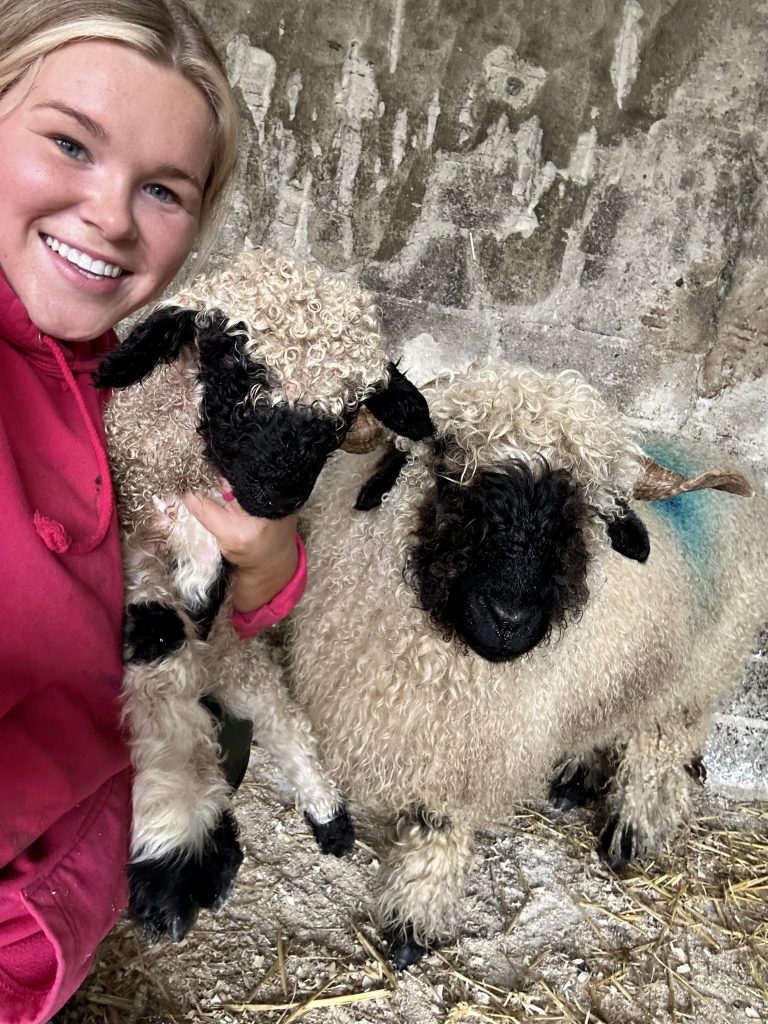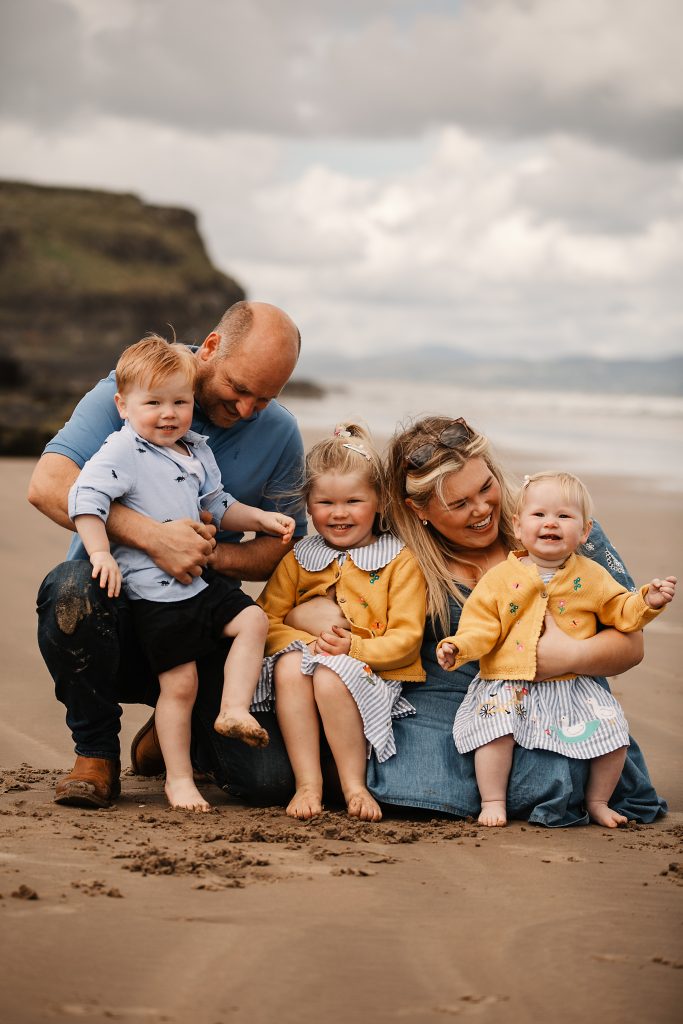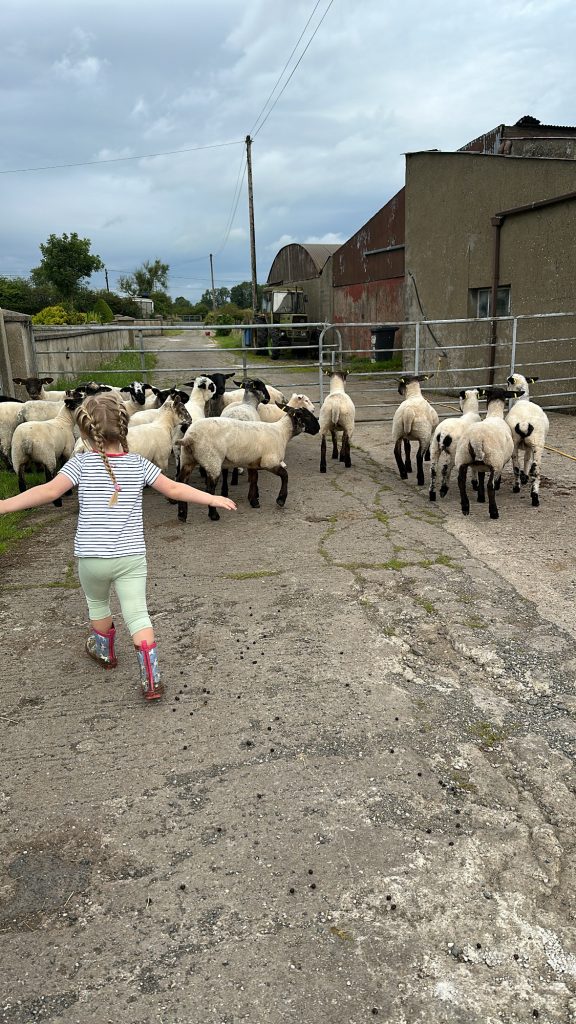As part of our campaign to support British farming, we created this blog to provide farmers with a platform to share their stories and experiences, offering insights beyond what you see on their Instagram accounts. Read below to take a walk in Rebecca Henry’s (@juraviewfarm) wellies, a 4th gen Dairy farmer, mum of three and pedigree flock breeder from Northern Ireland…
Hiya, I’m Rebecca. A farming mum of 3 from Coleraine, Northern Ireland. I farm alongside my husband, Philip, and my father-in-law on our 4th generation dairy farm. We also have another farm comprising of sheep and some beef cattle. However, my latest passion has been in breeding the “world’s cutest sheep”-Valais Blacknose.
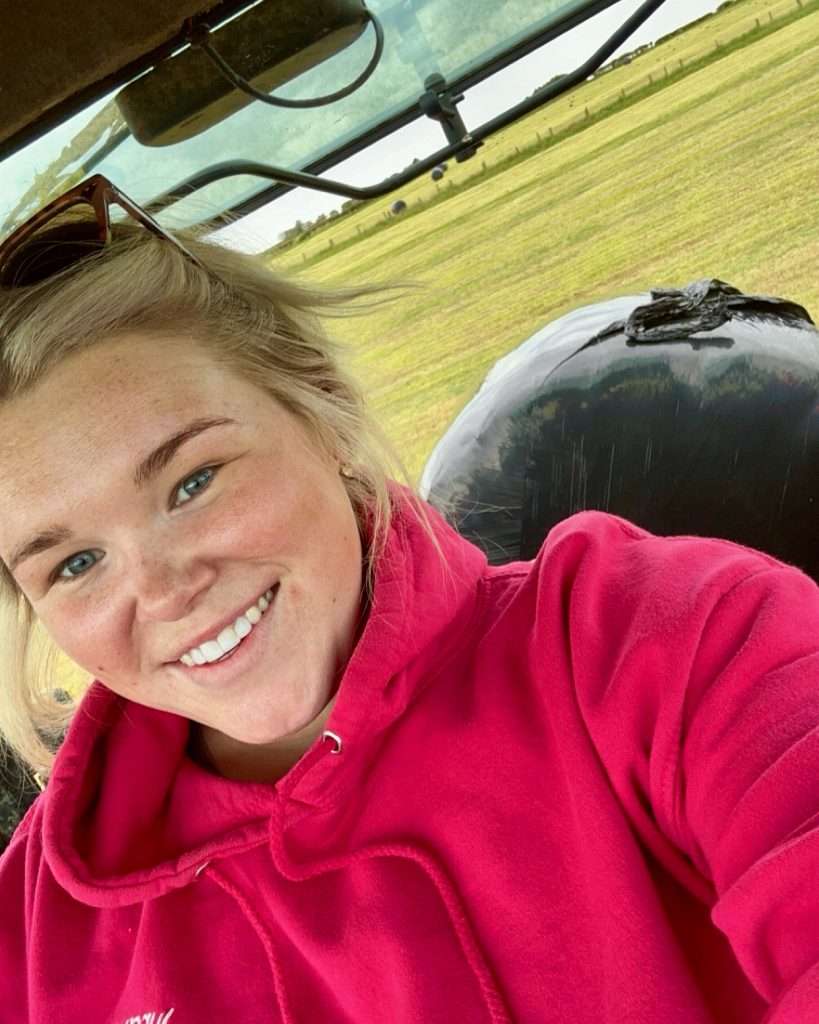
From when I was a tiny tot I had an obsession with animals. My mum wrote in my baby book that I’d grow up to be a vet, a zookeeper or a farmer’s wife. I guess I succeeded in one of those! After Philip and I got married life threw us some curveballs. I was working in insurance at the time and the decision was made I’d come home to farm.
If I was coming home to farm full time, I wanted to have something I could call my own. So, I chose to enter the world of pedigree sheep. What better breed to go into than Valais Blacknose? They’re super cute, docile and are a dual-purpose breed. Despite their adorable looks they are high maintenance divas! Needing sheared every 6 months and regular feet checks, as they are used to grazing the side of a mountain in Switzerland not the rainy fields of Ireland.
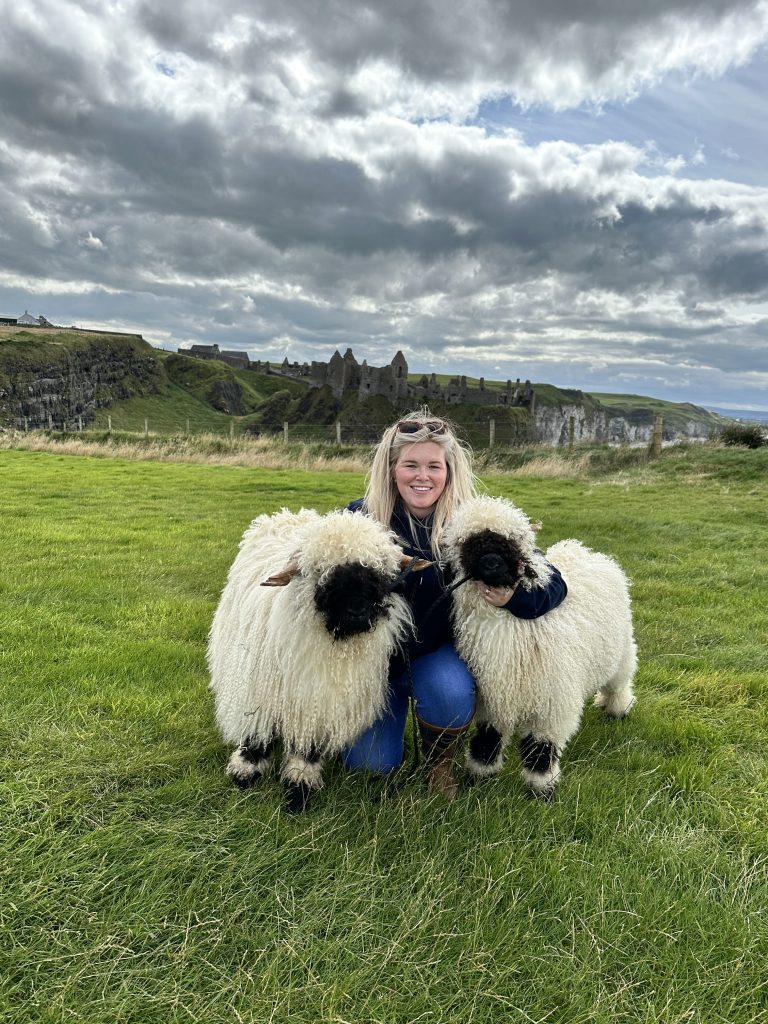
We have in previous years tried flushing our Valais ewes. While we were successful in the flush, the difficulty comes in getting the recipients to hold the embryos. Going forward I decided breeding a natural flock was more my kind of thing. I am looking to produce lambs with a good fleece, correct markings and a strong frame for the show ring. In the Valais world I think it is every breeder’s dream to produce a ”spitti” (it has reverse markings). They are thought to bring good luck to your flock.
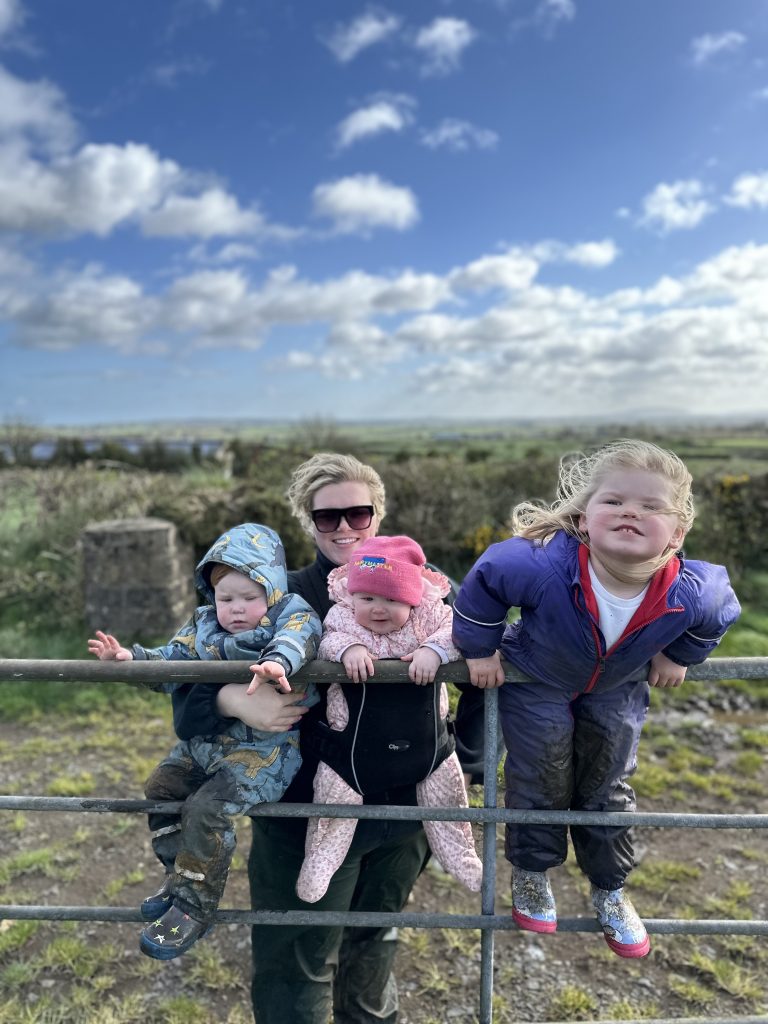
Good stockmanship is an important quality to have on any livestock farm. Whilst technology helps us greatly on farm, as we have recently set up a heat and health detection system for the cows, no amount of technology will compare to stockmanship. We are a mostly autumn calving herd, so we are currently in the thick of it. I rear the calves which takes a great deal of patience and perseverance. A love for animals and a good eye to know when an animal is maybe taking a turn for the worst are vital skills. A good sense of humour is a quality that won’t go amiss on any farm. Yes, it’s stressful when a batch of heifers break into the neighbour’s garden or you get a phone call to say the sheep are running down the road. These mishaps (usually) make for good stories and it helps to see the funny side.
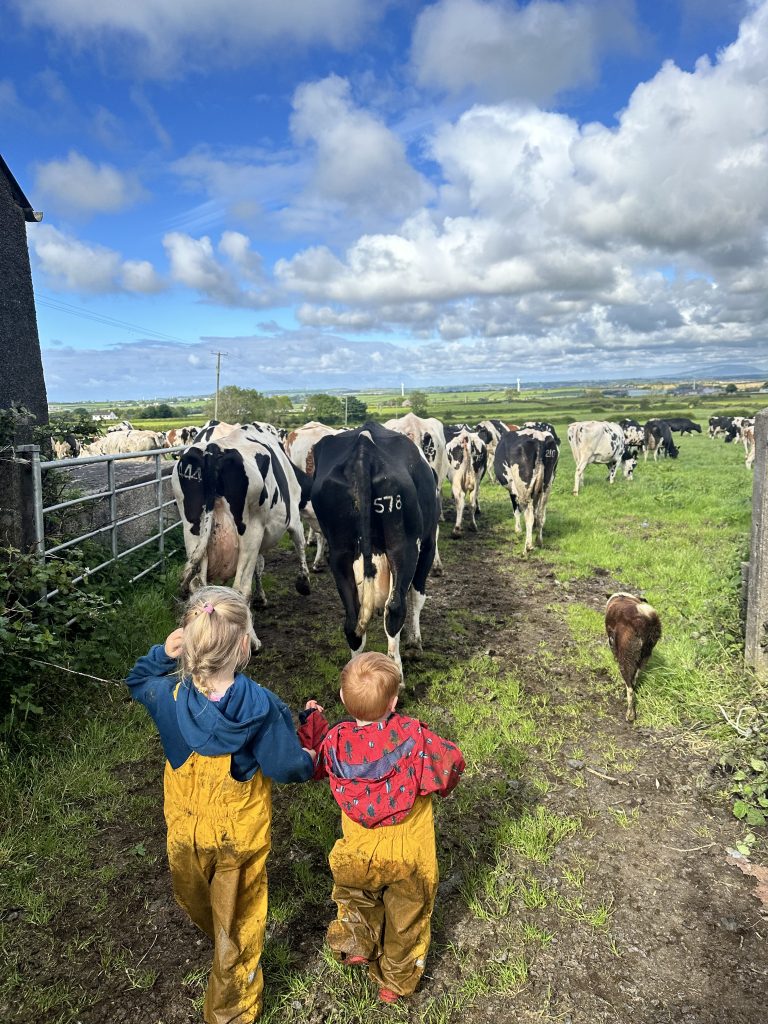
We have 3 young children – Grace is 4, Freddie is 3 and Eliza is 1. They love getting stuck in at lambing time, helping to milk cows or feed the calves. The farm is teaching them more than they will ever realise that’ll help them on the path of life. My housework maybe isn’t up to the standard it should be but as the years go on the toys will get fewer and maybe I’ll finally get on top of the endless loads of washing!
A typical day in our life is hectic to say the least! Philip goes out to milk at 4.45am and the kids usually waken at about 6.30am (on a good day!). Once Philip comes in from milking, I go out to feed the calves before coming back in to do the school/nursery runs. We try to squeeze as many jobs in as we can from shifting stock still at grass, vaccinating, fencing or tractor work before we have to feed calves and milk the cows again.
How can we be sustainable? For us on our farm, it’s about farming in a manner that meets our needs and works for us as the current generation; while also ensuring we leave behind a successful and profitable farm for the generations to come. Breeding pedigree livestock can be an expensive game and it’s important to minimise input costs where possible. We are keen to breed sheep which are more productive, with less foot problems and require less work as we feel this is how we can improve our sustainability within the flock.
Climate change is a farmer’s biggest challenge. We can’t control it but we can limit the effects on farm as much as possible. Sheep are amazing animals; they can find any hole in the hedge to escape through, but they can also sequester carbon through their wool which in turn limits the amount of carbon dioxide in the atmosphere which helps to reduce climate change.
I hope to leave our children a profitable and sustainable farm. One they are happy to step into and run if they choose it. Maybe they won’t go down the line of pedigree sheep but I’d encourage anyone to get into them. There is nothing more rewarding than seeing your stock winning rosettes at shows!
If you’re a farmer and you’d like to contribute in our campaign to raise awareness for the incredible work in British agriculture, please drop us a DM on Instagram – @_howdenrural

